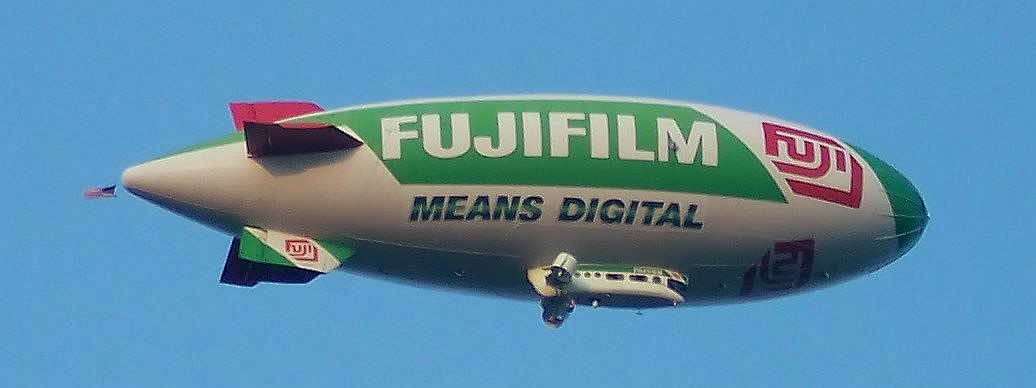mszargar
Established
99% of the people around me consider me a geeky tech guy. I have plenty of computers and gadgets at home, and nearly all my work and entertainment flows are entirely digital, including task management, reading and studying, writing, programming, shopping, listening to music (old laptop converted into linux mpd server) and watching movies (old laptop converted into plex server). I mean, I know what digital is. I thrived on digital.
Yet, I enjoy shooting film much more than digital.
Why? Because photography is my dearest hobby, and I expect my hobby to help me break away from the world of numbers and laser-sharp precision and think otherwise. I enjoy the simplicity and low-tech, accessible feeling of the film. The simplicity turns off the geek inside that is always in search of "improvement" in quantitative terms and turns on the kid inside that is in search of novelty within the limits of the restrictions posed by the medium and the technology. I shoot a couple of roles, I process them in a small tank, and voila, the photos are there and I can check them on a lightbox with my own eyes. I can have a very immediate physical relation with them, without the mediation of a behemoth of multi-processor Mac Pro.
Above that, whenever I pick a classic camera body I have the feeling that the machine is designed to inspire rather than fulfill. Not the case with most digital cameras: at the pinnacle of technical and technological accomplishments, they are still badly designed and for sure, not with the creative photographer in mind. They are just perfect environmental scanning machines (Well, I guess finally we are seeing changes in that trend).
Furthermore, in a world where lifecycles are measured in minutes, I feel great clinging to my cameras that do not expire yearly. Have you ever heard of a good violinist who changes violins every other year? Isn't getting used to the instrument a part of becoming a good violinist?
Now, the whole wet-lab print process does not fit my life style. I do print in a nearby lab I have access to, but I have way too much space and time constraint for that to be my primary workflow. I will be still relatively happy if I can have a hybrid photography workflow that lets me conserve the simplicity of my capturing moments and does not require me to apply so much post processing to my photos in order to make them feel like real that finally I start doubting the reality of the photos.
I hope this answers the comments of surprise about the weird hybrid practices of the new film converts. And yes, if some venerable company could make decently priced (sub-1k) quality scanners, I would capture in analog for as long as I can foresee. Not that I wouldn't shoot digital at all, but analog would be around as well.
Yet, I enjoy shooting film much more than digital.
Why? Because photography is my dearest hobby, and I expect my hobby to help me break away from the world of numbers and laser-sharp precision and think otherwise. I enjoy the simplicity and low-tech, accessible feeling of the film. The simplicity turns off the geek inside that is always in search of "improvement" in quantitative terms and turns on the kid inside that is in search of novelty within the limits of the restrictions posed by the medium and the technology. I shoot a couple of roles, I process them in a small tank, and voila, the photos are there and I can check them on a lightbox with my own eyes. I can have a very immediate physical relation with them, without the mediation of a behemoth of multi-processor Mac Pro.
Above that, whenever I pick a classic camera body I have the feeling that the machine is designed to inspire rather than fulfill. Not the case with most digital cameras: at the pinnacle of technical and technological accomplishments, they are still badly designed and for sure, not with the creative photographer in mind. They are just perfect environmental scanning machines (Well, I guess finally we are seeing changes in that trend).
Furthermore, in a world where lifecycles are measured in minutes, I feel great clinging to my cameras that do not expire yearly. Have you ever heard of a good violinist who changes violins every other year? Isn't getting used to the instrument a part of becoming a good violinist?
Now, the whole wet-lab print process does not fit my life style. I do print in a nearby lab I have access to, but I have way too much space and time constraint for that to be my primary workflow. I will be still relatively happy if I can have a hybrid photography workflow that lets me conserve the simplicity of my capturing moments and does not require me to apply so much post processing to my photos in order to make them feel like real that finally I start doubting the reality of the photos.
I hope this answers the comments of surprise about the weird hybrid practices of the new film converts. And yes, if some venerable company could make decently priced (sub-1k) quality scanners, I would capture in analog for as long as I can foresee. Not that I wouldn't shoot digital at all, but analog would be around as well.


